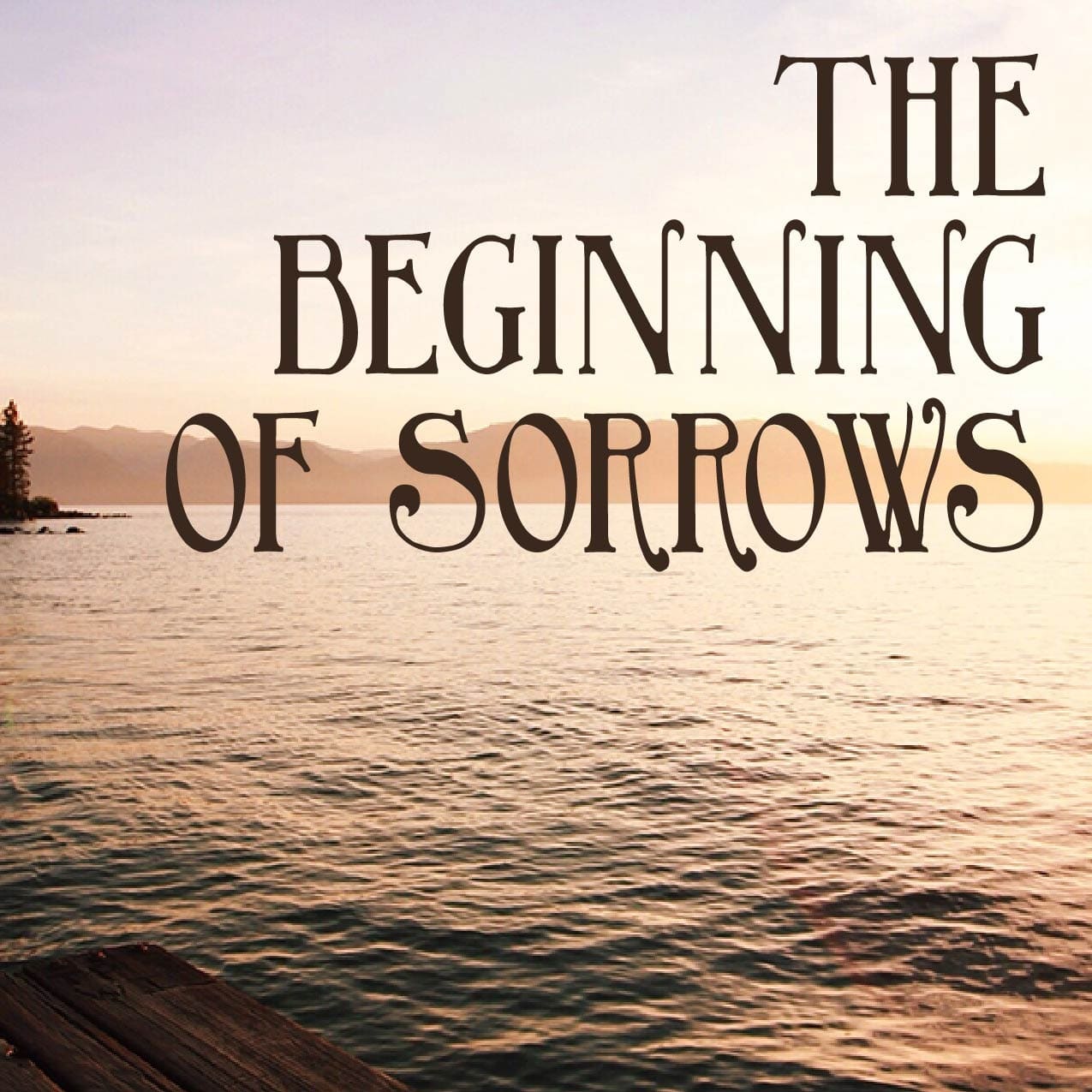Preface
In the years since I was wrote this article for Ministries Today after Hurricane Katrina, our world has experienced even greater unprecedented disaster. When people ask me, “Pastor Jack, do you think this is the last generation?” my answer is, “I don’t know. But I do know this: It’s yours and mine.” The issue is not, “Do we live in the last generation?” The issue is, “Will you and I live for Jesus Christ in the one generation we have and do business for Him until He comes?”
– Jack Hayford, July 2011
* * *
The disciples came to Him privately, saying, “Tell us, when will these things be? And what will be the sign of Your coming, and of the end of the age?” And Jesus answered and said to them: “Take heed that no one deceives you. For many will come in My name, saying, ‘I am the Christ,’ and will deceive many. And you will hear of wars and rumors of wars. See that you are not troubled; for all these things must come to pass, but the end is not yet. For nation will rise against nation, and kingdom against kingdom. And there will be famines, pestilences, and earthquakes in various places. All these are the beginning of sorrows.” – Matthew 24: 3, 4-8
Three days after Hurricane Katrina hit New Orleans in 2005, the Lord spoke a word to my spirit. I believe the storm contained a trumpet call to clarity of thought about where we are and what we’re doing.
We all watched with stunned shock as New Orleans became a soup bowl of swill, flooding millions out of their homes, businesses, and church properties. Like watching the World Trade Center towers dissolve into flaming dust, you felt you were watching something that – at least until that moment – you could only expect to see via a special-effects trick computerized into a Hollywood flick.
But it was real. And I will never forget watching the levees crumble before my eyes and feeling the Holy Spirit’s heartbreak within me prompting compassionate intercession for the sparing of lives, the intervention of God’s grace, and the applied wisdom of emergency workers on the scene there.
The mess didn’t go away. Over the next two days, even though the storm winds were past, the situation got worse, and my heart felt weighed down with pain for the human agony we witnessed: people standing on rooftops, families weeping as small crafts carried them from their homes, refugees stretched out in makeshift rescue centers, from tent cities to the New Orleans’ Superdome. But it was on the third day that I heard a voice in my soul. Let me preface that prophetic “word” by providing two points of background I feel are important to contextualizing it.
I know my own emotions when it comes to observing natural disaster and its impact on people. Along with so many other shepherds in Los Angeles, I pastored our city through the aftermath of 1994’s Northridge earthquake. I know the heaviness on the soul, on the culture, when disaster hits. But the “heaviness” I felt on the third day after Katrina was very, very different.
I heard the Spirit of God speak directly from the eternal Scriptures, words spoken by Jesus Himself-words prophesied regarding the end times. There is no doubt in my mind that I am on safe terrain with this word – it comes out of God’s Word, not only as a concept but also as a direct statement.
It was three days into the aftermath of the hurricane’s passing, while standing in our den at home and watching the live TV report of the status of things as of that moment, that I sensed a different heaviness. It wasn’t the emotional burden of shock, or the pained feelings for suffering people: I had felt these things already, and I had prayed and taken action along with others, for the hastening of relief teams and rescuers to the scene.
Feeling the deep heaviness surround me, I prayed: “Lord, I don’t understand this burden; this is different than what I have felt before.” It was at that precise moment a voice spoke deep within my being: “All these are the beginning of sorrows.”
The words were crystal clear, weighty, and sobering, prompting me to prayerfully inquire further. Of course I knew they were from Matthew 24:8, and I was also aware that the Greek word translated “sorrows” means “birth pains.” I began to pray about their special significance in the context of the moment, and then I turned their original context – the New Testament message recording Jesus’ longest single prophetic teaching on the “end times.”
As the Savior employs the idea of a woman in travail to make His point, He poignantly lists a series of “sorrows,” including societal, natural, and demonically-instigated disaster and heartbreak, revealing that they will come with gradually increasing intensity and frequency of occurrence, as with a woman’s contractions en route to delivery of a child. As I reflected on that, something attended the moment. I wouldn’t necessarily suggest I saw a vision, but the next moment, my thoughts were flooded by a selection of mental “video-clips.” They weren’t assembled by any order or reflection, but seemed to simply stream through my consciousness.
Without meditation on them, a rash of scenes spun before my mind’s eye: the wreckage of the train blown up by terrorists in Madrid, the complete devastation of Banda Ache, Indonesia, following the tsunami, the bloody bodies and scattered limbs from human carcasses at a Tel Aviv or Jerusalem suicide bombing scene-and other horrors as well: mudslides, earthquake-demolished multi-story apartment houses, along with the increase of mindless or demon-ministered murders and acts of depravity.
The connection was obvious: Katrina was being focused in my understanding as more than a single, painful event. Rather, I felt the Spirit of God seeking to impress me with the fact that this horror is among a cluster of things that we must understand will not only increase in number but also in devastating awfulness and agony, our planet – and our own nation – will experience as we spiral ever more closely toward “The End.”
Let me hasten to say, I felt no need to issue any chronological timetables. But I did (and do) feel a heightened urgency regarding my accountability as a leader during days like ours. Ordinarily such a word might seem to prompt a dour fatalism for some people, but I believe the “heaviness” it might hold is that which biblical prophets refer to as “the burden of the Lord.” It’s God’s weighty call, alerting us by His Word – issuing a warning that calls the sensitive hearer to action. Such words are not doomsday prophecies; they are “your-day” prophecies – words God gives to prompt us to greater expectancy, greater faithfulness, and greater accountability.
Katrina was just one storm, one explosion, one disaster, one upheaval – a single event among many more that have happened and will increase in a compact number of years. And to be sensitized to that is neither to project a specific timeline or prophecy any more than it is to prompt despair. To the contrary, it is a call to hope – a call to take our place in our hour, buoyed in faith, knowing God’s future through His own as well as for His own is always hope-filled!
To focus on practical steps of response, let me offer three thoughts that distilled in my own soul following that post-Katrina encounter.
We need to be shaken!
Jesus’ message in Matthew 24 is directly tied to His “midnight call” parable in chapter 25. The ten virgins awaiting the bridegroom’s return and the wedding celebration divide evenly into “the ready” and “the unready.” There are two points:
First, even those interested in the coming wedding are divided in their “readiness.” In short, being “interested” in prophecy doesn’t qualify as being alive to the prophetic moment!
Second, the distinction He makes is between those who have oil and those who don’t. In other words, to have had an experience in the Spirit’s anointing is no substitute for my living in the fullness of His presence daily – my light shining in today’s darkness. Here was a “Katrina shake-up, wake-up call.” Our Bridegroom is coming soon! Let’s go forth – ablaze daily – to meet Him!
We need to be sobered!
In the same vein, Luke 17:22-37 warns of the dangers of living in days likened to “the days of Noah.” They point to the ease with which people will be “drunk” – not only by alcohol, but by means that dupe or disorient us. For some among us who believe, the headiness of the wine of success holds the potential of a kind of inebriated fall.
I also wonder if the growing habit of superficial worship-so happily celebrative, but so seldom leading to sobering encounters with God-might qualify as a point of danger. In any case, let us pray:
“Lord Jesus, I invite Your review of my habits, my reading, my worship, my entertainment, my diversions, and any inadvertent presumptuousness or rationalized compromises. Guard me, dear Lord, from the dullness of this age’s drunkenness.”
We need to be secured!
Luke’s Gospel (12:39-40) also discerns the secretive, undermining, and end-times “digging through” of the break-in of a home, which Jesus likens unto the personal loss of values that reduce an individual’s readiness for His return. He notes the thief (see John 10:10), our Adversary–so very different from our heavenly Bridegroom–who will come “as a thief in the night” (see 1 Thessalonians 5:2).
But a constant sensitivity to the Holy Spirit’s warning will avoid such loss, and for me, the “word” following Katrina pins the call on the wall: We aren’t called to talk “end times,” but we are called to live and lead in them – shaken awake to the hour, sobered by its seriousness, and secured in Christ as those who will lead in His wisdom, as we remain guarded against all that would erode the values and clarity of purpose to which we’re appointed in Him.
Copyright © 2006, 2011 Jack W. Hayford, Jack Hayford Ministries
Download the “Keys To Revelation” study guide
Download the “Studies in the Book of Revelation” study guide
Download the “Unlocking the End Book“ study guide
Our gift of this article by Pastor Jack Hayford is made possible by your gracious support of the ministry. Partner with us online or call toll-free 1-800-776-8180 to donate (within the U.S.).




